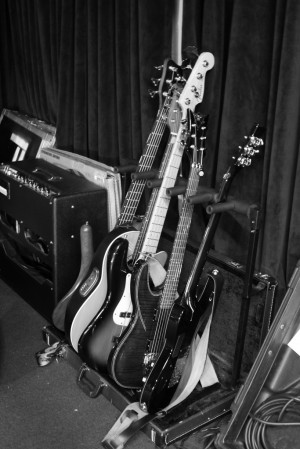You have no items in your cart. Want to get some nice things?
Go shopping
There are good teachers and bad teachers and those who just don’t care. Ultimately there are only a few naturals: those who don’t put themselves above you, who care about what they do … and about you. Penny Valentine was one of the few.
The University of North London (UNL) has long since been rebranded and amalgamated into the fragmented campus of London Metropolitan University, but it was at UNL, in the grey urban towers of Holloway Road, that Penny’s path crossed with mine.
I was standing in a queue, filling in a form, choosing my course.
“Do you know who’s teaching the journalism module?” I asked the administrator.
“Penny Valentine – I think she used to be a music journalist in the sixties or something.”
I ticked the box and handed in the form.
Penny set me up with the best-looking girl in class. First day of term, teacher divides everyone into pairs to interview each other – to get a feel for the trade, and to break the ice.
“Now … why doesn’t Tom go off with … Nadine?” There was something in Penny’s eye, in the way she said it, that convinced me she was playing Cupid.
And so I sat with Nadine on the mezzanine floor, drinking coffee and trying to be myself. The girl was immaculate and disconcertingly measured. Penny had asked us to just chat naturally, but to make notes afterwards, and then report back with one fact about the other person and an outline of their prospective career.
Nadine reported that I was ten years older than her and that I would struggle to find a job. I forgot Nadine fairly quickly, but Penny has always stayed in my mind. This small, grey-haired woman in her late fifties had a spark that nothing could extinguish, yet you always felt relaxed in her presence.
Soon the class was learning the craft of journalism. We started with the interview. I learned a valuable thing from Penny: when writing up an interview, never use the word ‘I’, unless quoting the interviewee. There was a way not to phrase a question:
I asked Penny why I should never use the word ‘I’ when writing up an interview.
“Because it isn’t about you”, she replied.
There was a way to phrase a question:
Why did Penny feel the word ‘I’ should never be used when writing up an interview?
“Because it isn’t about you”, she replied.

Next we were moving from theory to practice. Penny told us to get out there and interview someone of high status. This seemed like a stumbling-block. Why would someone of high status want to be interviewed by a student, especially without being paid?
“Be bold”, she advised. “Try your luck. That’s what you’ll have to do when you graduate.”
David Bowie was unlikely to agree to it though, wasn’t he?
Penny froze. Just for a moment. Thoughts fluttered behind her eyes; thoughts that never hatched into the emptiness of words.
“They don’t have to be famous”, she said, emerging from her reverie. “It could be someone in the local community, such as a business manager … anyone like that … come on, use your loaf!”
The next morning I was on the phone to the managing director of the film-extras company I was working for: a hyper, garrulous young woman – let’s call her ‘Anna’ – who never paused on the phone or let you say more than she needed you to say.
How would she feel about being interviewed?
An awkward silence uncoiled along the wire.
Then she said it would be fine.
Back in class Penny went through our texts in one-to-one sessions. She gave credit where it was due, showed you how to improve, and weeded out the clangers.
“Now Tom”, she said, pointing at a place in my text with her pen. “This is the sort of thing you really can’t do.”
Penny had picked up on the part where ‘Anna’ had been recounting her experiences of working as a runner in the film industry.
Who was the most difficult person she had ever worked with?
“Oh, without a doubt, it was ‘a certain actress’ on a ‘well-known film’. She was the most demanding, spoilt brat from hell I’ve ever met.”
Penny advised one could face litigation for this type of thing.
“You can’t name the person or even the film”, she said. “You have to say it was ‘a certain actress’ on a ‘well-known film’.”
And who was the best person she had ever worked with?
“Judi Dench on Shakespeare In Love. We were working on a night shoot in the rain, and she let me use her chair while she was filming.”
Penny said that it was fine to say this type of thing.
The one-to-one sessions were where one learnt the most. Penny’s vivacity made you want to learn. Occasionally, however, she’d drift from the topic and gaze out of the window, at the hazy grey horizon of the Holloway Road.
Was everything okay?
“I’m just tired.”
Was she losing sleep because of marking?
“No … I have a teenage son.”
Did he cry in the night?
She tittered.
“No … it’s just….”
Could it be the transition from childhood to adolescence? The boy who used to hang on to her arm and every word … had he now become distant and monosyllabic?
Her eyes reflected the light.
But couldn’t it just be a passing phase?
She smiled.
The last time our paths crossed was on Holloway Road. She was standing in a doorway, sipping a cup of coffee on a misty autumn morning.
“Penny … hi.”
She was huddled in an overcoat, all wide eyes and smiles.
“The course is over, Tom.”
Yes. Now it’s time for the real world.”
The traffic trudged by beneath a grey, polluted sky.
Was it as hard as they said? Especially with no experience? How did one get ahead?
“You’ve got to get out there and get yourself known. Make contacts. It’s all the old clichés but they’re true. Unfortunately a lot of it’s about ego too. That’s life. But have your own projects as well – you need passion, otherwise you’re nothing. Ultimately you have to care about something, or else what’s the point?”
The future was unwritten but the way ahead was tough. Penny drained her coffee cup. She wished me luck and said she had to go. She started to walk away. Then she stopped and turned around.
“Whatever you do though, go for it. You never know what’s around the corner.”
Traffic fumes mingled with autumn mist. The grey-haired woman in the overcoat slowly walked away, dissolving amidst the hues of the Holloway Road.
A few years after I graduated I reflected on my time at UNL. I found myself thinking about Penny. Who was the grey-haired woman in the overcoat? I Googled her.
Penny had been one of the foremost music journalists in Britain in the sixties and seventies. More significantly, she was the first female journalist to write about pop music in the British press. In such a chauvinistic, heady environment, one would have needed Penny’s resolve simply to survive, let alone to thrive as she did. I believe it was her passion that sustained her. As Richard Williams commented in The Guardian: ‘She was probably the first woman to write about pop music as though it really mattered.’
Disc magazine gave Penny her first big break in 1964. She subsequently became the most authoritative reviewer of pop singles in Britain. When The Beatles dropped into Disc’s Fleet Street offices, it wasn’t only for promotional duties, but to drool over the strikingly-beautiful Penny. Whether or not The Fab Four’s flirtations ever amounted to anything scarcely matters; with her looks, ebullience, and well-honed sense of fashion, Penny attracted the attention of most of the men she met on her eminent social scene, including Steve McQueen.
Yet glamour and glitz never overwhelmed or undermined her. Culturally she was always a step ahead, being wise to the fads, and alert to unheard, passionate voices. Penny knew that – at its best – pop music could be a conduit for free expression and social change. In racialist, xenophobic, 1960s Britain, she championed the fledgling careers of Stevie Wonder, Aretha Franklin and Marvin Gaye, while most of the press ignored them. Penny – half-Italian, half-Jewish, the only child of a Covent Garden market trader and a hairdresser – was forever on the side of the underdog.
Closer to home there was another young artist whom Penny had always supported: David Bowie. So that was why she had looked at me that way in class that time. I had merely mentioned Bowie as he was an artist I had always held in high regard, and I had offered his name jokingly, as an example of someone who would be off limits for a student interview. But I discovered that Penny had interviewed Bowie. Several times.
And she never breathed a word.

The more I found out about her, the more intrigued I became. Levi Stubbs from The Four Tops had taught her to dance. The Beatles and The Rolling Stones had all been personal friends, as had Dusty Springfield, about whom Penny co-wrote – with Springfield’s manager, Vicki Wickham – the acclaimed biography, Dancing With Demons. But it was the fact that she never breathed a word, that’s what made me respect her, that’s what told me she had real class.
Yet there was much more to Penny than having famous friends and being on the scene. Her social conscience and political leanings bore increasing precedence for her during the often bleak and turbulent 1970s.
In 1970 she joined Sounds, a high-profile rival to Melody Maker, for whom, along with New Musical Express, she also wrote from time to time. After a spell in PR – which included running the press department of Elton John’s Rocket Records – she worked as a journalist again, on Street Life, the short-lived British equivalent of Rolling Stone. The magazine folded in 1975, and Penny joined Time Out. A long-term member of the National Union of Journalists, she was active in a long but ultimately unsuccessful challenge to wage inequality at Time Out, and joined many of the staff in a walkout.
By 1980 Penny and thirty-four of her colleagues at Time Out literally had walked out, to found the rival listings magazine City Limits, which had a sharper political focus. It was here she honed her skills as an assistant editor.
Penny was also involved with socio-political organisations such as Women in Media, Sheba – a feminist publishing cooperative – and Rock Against Racism, with whom she took to the streets of Lewisham in the late 1970s to march against the National Front.
My acquaintance with and research of Penny Valentine showed me that she understood a lot: that the false gods of fame and wealth don’t merit our veneration, and that life isn’t absolutely, or even necessarily, about oneself. Penny was one of the few people I have met who genuinely impressed me – and she never tried to impress me.
There was one other thing I learned about Penny from my research: she had died a little over a year after I graduated. The only thing that had been able to extinguish her spark was cancer, and she had been coping with her illness for a long time.
I know the deal with this life business: you are here for a certain amount of time and then you are not here. The amount of that ‘certain’ amount of time is uncertain and non-negotiable. There does, however, seem to be an almost arbitrary cruelness in that it is often the best who go before their time.
You may as well still go for it though….

About Tom Wood
Tom has worked as an arts journalist and as a script writer for TV documentaries. His own work has comprised mainly short stories, which veer toward the satirical, the surreal and the macabre. He won The London Writers' Café section of Issue 7 of Open Pen magazine for his short 'The Three Essential Lessons'. Other projects have included sketches and a full-length play - Mary - which was staged at The Tristan Bates Theatre, London, in 2011. Tom has recently set up a film-production company – Blindly Driven Films – with director Adam Ryzman. Their first short – Relinquished & Volatile – will be unleashed soon.


Hi Tom
I have just found your article about Penny Valentine. It brought back a lot of memories. Before Penny was a lecturer, I spent three years at ‘UNL’. Without her I don’t think I would lasted. She had such a generous spirit. I often think of her.
Angie Meader
Hi Angie
Great to hear from you – it just shows how much of an impression Penny made on people, and that she will not be forgotten.
I remember her saying she did a film studies degree at UNL before she started teaching. Perhaps that was how you knew her?
It is such a good memory, to have been taught by her and to have gotten to know her. I warmed to her as a person and respected her. If you are in touch with any of her friends or family please do share the article.
Best wishes
Tom Wood